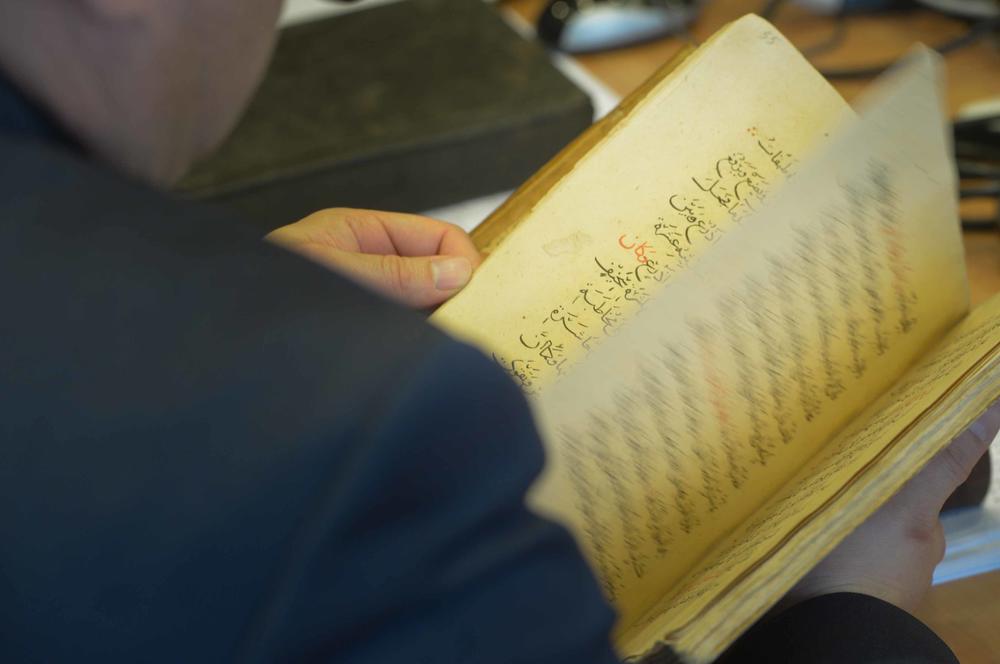Hummus and Applesauce
Students delved into what it means to be Arab in Germany and created poems and performances
Mar 09, 2023
Roughly 300 million people around the world speak Arabic as their first language. Some of them moved to Germany, many of them decades ago, and live in Berlin. Their children and grandchildren were born here, and some of them are enrolled in Arabic studies classes at Freie Universität. Along with other students in the class, they investigated everyday Arabic life in Germany. On May 16, 2023, at 6:00 p.m., they will share their findings in a presentation at the Amerika-Gedenkbibliothek in Berlin.
How Do I Live Up to My Identity?
“Among other things, it had to do with dealing with one’s own experiences and putting feelings into words,” explains Susana Abdulmajid, who led the seminar together with Ruben Schenzle, a researcher at the Seminar for Semitic and Arabic Studies at Freie Universität. The students recorded the results of this reflection process by creating poems and performances. Many of them felt a bit like they were in a vacuum because they do not speak Arabic – or Turkish – as well as their parents.
Susana Abdulmajid, an actress who is also enrolled in the Arabic studies program, says, “You often ask yourself: Do I have to be all the more Arab, all the more Syrian, all the more religious, in order to do justice to this part of my identity?”
The Dahlem Center for Academic Teaching at Freie Universität has a funding program that enables students to help organize classes. This seminar took place within that program.
The challenge of dealing with one’s own identity was a recurring theme in the students’ contributions to this seminar. One student wrote, “I am first and foremost a Muslim,” while noting that her faith makes her a stranger in Germany. Summing it up, she said, “I am a stranger in the country where I was born and where my family has lived for 60 years.”
The Arabic studies program often deals with past historical periods and classical literature. There is little space in the curriculum for students’ own experiences. However, as Ruben Schenzle pointed out, most of the students enrolled in the Arabic studies program have some personal reason for choosing this subject, either because of their family background or their interest in political and social affairs. Often it was the events surrounding the so-called Arab Spring in 2011 or the migration of people from Arabic-speaking regions in 2015 that moved this generation of young people in Germany to begin studying Arabic languages and cultures at the university.
The phrase “being Arab in Germany” indicates that it is a topic affecting many people, even when their family background has no connection to the region. For example, one German student created a fictional persona, Lisa-Marie-Sophie, who satirically reports on a language course in Jordan, highly recommending it as being advantageous for anyone’s CV – of course, because anyone who is fluent in many languages is considered to be cosmopolitan and well-educated. However, while Lisa-Marie-Sophie as a white student improves her chances on the job market by learning Arabic, people of color are often seen as being poorly integrated, when they switch between Arabic and German in everyday life in Germany. That is also part of the reality of “being Arab in Germany.”
The original German version of this article appeared in the Tagesspiegel newspaper supplement published by Freie Universität Berlin.

